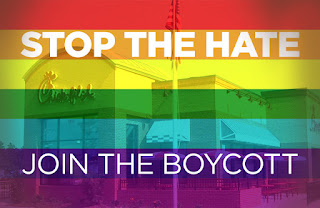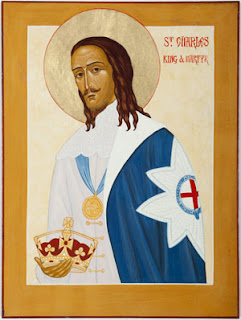Wednesday, December 5, 2012
The Dream of Advent: A Sermon for Tuesday of the First Week of Advent
Psalm 72: 1-8
Luke 10: 21-28
All Saints' Chapel, Church Divinity School of the Pacific
Tuesday, 4 December 2012
Tuesday of the First Week of Advent
This fall I was given the opportunity to tutor elementary school students in a charter school in Oakland. Last Wednesday, one of the students that I tutor was reading the Velveteen Rabbit. While he was reading it, he started asking me a series of existential questions, “what does mechanical mean?” “what does it mean to be alive?” “why are we alive but robots are not? Don’t we need power just like a mechanical toy?” At first I thought he was trying to waste time as there were only ten minutes left in the session, and so I gave him a few polite answers, but he still kept pushing. He seemed almost troubled at the thought that inanimate objects were not living things, and there was a palatable silence from my answers which seemed to disrupt this child’s fantasy world.
Jesus said “I thank you, Father, Lord of heaven and earth, because you have hidden these things from the wise and the intelligent and have revealed them to infants.”
This seems to be an odd thing for Jesus to say, how do we as seminary students and professors even begin to approach such a text. We can have the intellectual knowledge to say that Jesus is the incarnate Word, the Son of God, and the Messiah; but all of these things are mere words, built up from a Hellenistic and Jewish philosophical and metaphysical paradigm. At the end of the day, these words they describe so little, if anything at all. Unfortunately, It does raise a number of questions as to why we are here at CDSP studying theology and religion.
But before we run and burn all our degrees and course work to set them on fire in an anti-intellectual fervor, let us pause to consider what Jesus is saying. Who and what is Jesus, and what does his being on Earth mean? In Advent, we await the coming of Christ and the reign of God on Earth, in full recognition that the reign of God has already begun with the coming of Christ 2000 years ago. Though we may attempt to try and understand what that may mean, I believe that the true meaning of the Advent of the Lord is elusive.
When we turn the words of the Prophet Isaiah, we see a vision of the reign of God will be like. The Prophet tells us that “a shoot shall come out from the stock of Jesse, and a branch shall grow out of his roots.” That shoot will judge the world with equity. Not only that, the world will be reordered to reflect that justice. Predators will lie with and eat with what was once their prey and infants will play with snakes. It is a fanciful scene, idyllic, and dreamlike even.
A common interpretation among Christians is that the shoot of the stock of Jesse is Christ. As Jesus has already been born once and came into the world once, we can say that the reign of God has begun because we believe Jesus Christ is that judge. There should be justice and equity in the world; the world should be reordered according to Isaiah. Yet, I do not think any parent will willingly let their children play with poisonous snakes. Nevertheless, we are presented with and confounded with a vision of God’s reign as it should be, and yet it is not. There is still injustice and pain in the world. How can we be living in the reign of God? Perhaps this paradox is what confounds the wise, and yet I think we must suspend our intellectual ascent and consider the world through the eyes of a child, whom Jesus says is able to see clearly that which is hidden to the wise.
A psychologist I know told me once that the most grounded people in life are those that maintain a certain childlike curiosity about them throughout their life. They are willing to examine and try new things, and embrace that childlike wonder and awe at the unexplored and newly imagined. The desire to explore, imagine, and dream should never die as we transition from childhood to adulthood.
And yet as a society, I fear that we haven’t learned how to truly grow up, we have only learned how to grow old. We are so afraid to have that childlike embrace of wonder and mystery, we are afraid to dream. It is written off as childish pursuits in a realistic world.
Perhaps that is why Jesus says these things are revealed to infants. The image of the wolf living with the lamb may seem like a far off fantasy dream world, and yet in a child’s imagination it is conceivable. This is not to say that Isaiah’s vision is childish, but there is a certain child like awe and wonder at a world that has been reorder from a world of destruction to a world of peace.
Sadly, we live in a world of cynicism, fear, sorrow, hatred, and distrust, and we use all of our conceivable intellectual capacities to rationalize and explain away the deep inequities of our world. Yet the Prophet Isaiah never promises that we will be freed completely from the evils of this world, but that there will be a judge to help us live into the vision and promise of the reign of God. For us, that judge is Jesus. Through Jesus Christ, through God, we have the freedom to imagine and dream of a world as it should be, and we have been granted the gift to live into and make our imagination and dreams a reality. Christ calls us to be children once again so that we may dream of a world as it should be, and grow up to make those dreams a reality.
This Advent, let us remember what it is like to imagine a world where anything is possible. Even though it is childish, let us learn to dream once again.
Tuesday, August 21, 2012
The New Mundane: A Sermon on John 6:51-58
“My flesh is true food and my blood is true drink.”
May I speak to you in the name of the True and Living God—Father, Son, and Holy Spirit+
In the past month we have witnessed multiple acts of senseless violence. On July 20, at a midnight showing of the Dark Knight Rises, a lone gunman shot and killed 12 people and wounded 58 others. On August 5, another gunman entered into a Sikh Temple in Wisconsin and open fired killing 7, including himself. On August 13, three were shot and killed near the campus of Texas A&M University. And August 15, a guard was shot outside the headquarters of the Family Research Council in Washington DC, thankfully, the guard survived. We know of these tragedies, and there are countless more that are not known to us. In cities and towns across the nation, there are people who die needless every day. There are children who live lives where violence is just a routine part of it. Regardless of where one stands on the issues of gun laws, we can all agree that the senseless violence that exists, whether it be in Aurora or Oak Hill, College Station or Washington DC, no matter where it is, the violence of this world, especially the violence that takes a life, is tragic.
Nothing I can say can alleviate the pain and the tragedy that the victims and families face in the wake of these events. Nevertheless, there can be some hope in this, for death is not the end. No matter what, no matter where, God has already conquered death.
“Very truly, I tell you, unless you eat the flesh of the Son of Man and drink his blood, you have no life in you. Those who eat my flesh and drink my blood have eternal life, and I will raise them up on the last day;”
When Jesus spoke these words, few at the time understood what he meant or what he was saying. Just a few weeks ago we heard of how Jesus fed the masses with just five loaves and two fishes, and now he is telling people to eat his flesh and drink his blood because he is “the living bread that came down from heaven.” All of this seemed nonsensical.
Time passed, and before Jesus’s death, he gathered with his friends and family one last time, and he gave some insight into what he meant that day. He took bread and said “Take, eat, this is my Body, which is given for you." He took wine and said "Drink ye all of this; for this is my Blood of the New Testament, which is shed for you, and for many, for the remission of sins. " This mundane bread is the body of Christ; this common wine is the blood of Christ. No response is given by his friends and family, perhaps they know what Jesus means when he calls the bread and wine his body and blood. Perhaps the gravity of his coming death overwhelms the situation and the room, and silence is their only response to this cryptic and unusual ritual in the midst of their Passover seder.
Soon after, Jesus is executed. His death by crucifixion was a relatively common experience in the lives of the people of the Roman Empire. Jesus was killed because Rome saw him as a rabble-rousing revolutionary. Thousands before him, including other would-be messiahs, were executed in this fashion, and thousands more would be executed in this fashion after Jesus. Crucifixion, considered one of the most excruciating and horrible forms of torture and death, is but another common event in the lives of those living in the Roman Empire whether it be outside of Jerusalem or along the Apian Way in Italy, it was meant to discourage dissent and desensitize people to violence and brutality so as to strip even the onlookers of their humanity.
Because of all of this, it is a relatively mundane story. It’s just another act of senseless violence. After Jesus’ death, the thousands of people in Jerusalem go about their business as if the next day is just another Sabbath day. And the world returns to its mundane weekly routine, just like people do today. Most of Jesus’s disciples go into hiding, or try to return to their normal lives. The only people around to mourn his death are his Mother the Blessed Virgin Mary, Mary Magdalene, Mary the wife of Cleophas, Nicodemus, Joseph of Arimathea, and the Apostle John. He is placed into a tomb, to be buried and then forgotten over the course of centuries like so many others before him.
But the story does not end there, death cannot contain Jesus, the Christ, the incarnate Word. Hell and death are conquered and the tomb bursts forth as the last of the Old Creation and the first of a New Creation. Christ is raised and dies no more. Death no longer has dominion over Christ for he conquered it, and now it no longer holds dominion over us.
The common bread and wine, the simple Jesus and his death have become extraordinary because the extraordinary body and blood of Christ and his new life have become mundane.
God became mundane so that we may be extraordinary.
His broken body has been given to us to become our body, and his blood has become that which binds us all together into that body—we are the living body of Christ. Every week, every day, every time we are together as a body, we are broken together and our blood is shed, only to be reformed again into a new body again, and again, and again. We share in this so that in our mundanity, we become extraordinary.
My friends, this calls for us to be and to do more than we are because Christ is “working in us,” and he can make us “do infinitely more than we can ask or imagine.” It demands a response because “his flesh is true food and his blood is true drink.”
When there is violence whether it be by a gun or by some other means, regardless of the situation, when evil enters into our lives and the lives of others, and when evil is done to someone, whether they are Christian or not, violence and harm is done to the body of Christ, for we are all one body and one family. As Christians, we are called to stand with the victims of oppression and violence, for as Archbishop Desmond Tutu say “God is biased towards the oppressed.” And there the body of Christ must be, with the oppressed, so as to encounter the body of Christ.
It is in that unusual paradox, the body of Christ meeting the body of Christ, that I think the true nature of what Jesus said to the crowds in the feeding of the multitudes, in the Last Supper, and in his Death and Resurrection is made known. It is the New Creation being formed and made in the image of God, Christ, and the Holy Spirit. In the Beginning, God formed life from the dust of the Earth, and breathed his spirit into it. Now, in the breaking and sharing of the Bread and Wine, the Body and Blood of Christ, we become the new breath of the Spirit, being given to the world for renewal and rebirth.
Indeed, as the Body and Blood of Christ, we can overcome the evil and darkness in this world.
In the face of tragedy, in the face of sorrow, in the face of death, the story does not end. Death has been rendered mundane in the face of resurrection and new life, and that extraordinary reality of new life and resurrection as the body and blood of Christ has become the new mundane.
Amen.
Wednesday, August 1, 2012
More than speech: The effects of Chick-fil-A on the lives of LGBTQ people
 The past few days have been ones of revelation regarding the
popular fast food company of Chick-fil-A.
Before now, it was a generally open secret that Chick-fil-A was opposed
to LGBTQ rights because of the various organizations that it donated money
to. Some worked to repeal legal
protection of LGBTQ rights, and others offered and promoted psychologically
damaging reparative therapy for LGTBQ people to attempt (and fail) to change
their orientation. Recently, son of the
founder of Chick-fil-A and president of the company, Dan Cathy, said in an
interview to the Baptist Press that when it came to supporting the so-called
traditional family he was “guilty as charged.”
He later said in an interview to The Ken Coleman Show:
The past few days have been ones of revelation regarding the
popular fast food company of Chick-fil-A.
Before now, it was a generally open secret that Chick-fil-A was opposed
to LGBTQ rights because of the various organizations that it donated money
to. Some worked to repeal legal
protection of LGBTQ rights, and others offered and promoted psychologically
damaging reparative therapy for LGTBQ people to attempt (and fail) to change
their orientation. Recently, son of the
founder of Chick-fil-A and president of the company, Dan Cathy, said in an
interview to the Baptist Press that when it came to supporting the so-called
traditional family he was “guilty as charged.”
He later said in an interview to The Ken Coleman Show:  In the
wake of Dan Cathy’s remarks, there has been an almost hesitant response from
people. Certainly Mike Huckabee and his
ilk continue to defend Dan Cathy’s remarks.
And though many others have openly pledged a boycott, I have also seen
responses from people who under any other circumstances would stand with
oppressed people, shy away from a confrontation with the business. Attempts are made to minimize Chick-fil-A’s
donations and their president’s statements either by stating that the amount of
money they donate to these groups is very small (except they have donates
hundreds of thousands and millions of dollars to these groups) or point to
other charitable organizations that they donate to that do not work towards the
oppression of LGBTQ people.
In the
wake of Dan Cathy’s remarks, there has been an almost hesitant response from
people. Certainly Mike Huckabee and his
ilk continue to defend Dan Cathy’s remarks.
And though many others have openly pledged a boycott, I have also seen
responses from people who under any other circumstances would stand with
oppressed people, shy away from a confrontation with the business. Attempts are made to minimize Chick-fil-A’s
donations and their president’s statements either by stating that the amount of
money they donate to these groups is very small (except they have donates
hundreds of thousands and millions of dollars to these groups) or point to
other charitable organizations that they donate to that do not work towards the
oppression of LGBTQ people.  Over the
past ten yeas, Chick-fil-A has donated millions of dollars to groups that
seek to deprive the rights of LGBTQ people.
This is beyond a simple matter of disagreement. For LGBTQ people, organizations like Exodus
International, the Family Research Council, the Marriage & Family
Foundation, and the Georgia Family Council are organizations that create and
maintain a climate of fear and shame for LGBTQ people. These organizations create the rhetoric that
allows for violence against LGBTQ people.
And these concerns are well founded, in the past few days, a lesbian in Nebraska
was carved with a knife, a gay man in Oklahoma was firebombed, and a girl in Kentucky
was kicked and beaten, her jaw broken, and her teeth knocked out while her
assailants allegedly hurled anti-gay slurs at her. This is not a matter of “oh well, life goes
on,” people’s lives and safety are at risk.
Over the
past ten yeas, Chick-fil-A has donated millions of dollars to groups that
seek to deprive the rights of LGBTQ people.
This is beyond a simple matter of disagreement. For LGBTQ people, organizations like Exodus
International, the Family Research Council, the Marriage & Family
Foundation, and the Georgia Family Council are organizations that create and
maintain a climate of fear and shame for LGBTQ people. These organizations create the rhetoric that
allows for violence against LGBTQ people.
And these concerns are well founded, in the past few days, a lesbian in Nebraska
was carved with a knife, a gay man in Oklahoma was firebombed, and a girl in Kentucky
was kicked and beaten, her jaw broken, and her teeth knocked out while her
assailants allegedly hurled anti-gay slurs at her. This is not a matter of “oh well, life goes
on,” people’s lives and safety are at risk.Sunday, April 15, 2012
Coming home Catholic: Rediscovering my Catholic faith in the Episcopal Church
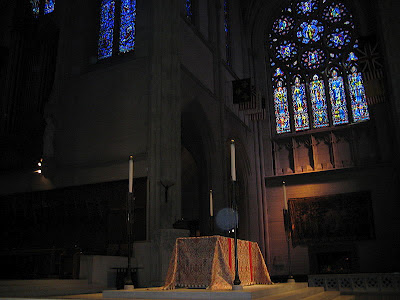
Sunday, April 1, 2012
An April Fools’ Palm Sunday
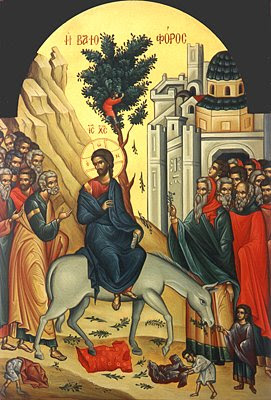
I cannot help but say I had a lot of fun today. This Palm Sunday was quite possibly the most joyous and exciting experiences I have had in church; perhaps in someway it reflects the excitement and joy that people had when Christ entered Jerusalem. The procession with the hymn All glory, laud, and honor set the mood for the day. And you know what, it was, dare I say, fun. And I am not just saying this because I am trumping my church’s horn; I had to keep a straight face while singing and suppressing a smile while in the procession (lest I look to happy in Christ Church). There is one thing that struck me today, today is not just Palm Sunday, but it is also April Fools’ Day. There is something to be said about that, that at the end of Lent, and in the sadness of the days to come in Holy Week, there is foolish defiance of the powers of the world in Palm Sunday that is but a foretaste of the Resurrection of Christ.
Over the Passover in Jerusalem in Jesus’s time, it is likely that the Roman Governor, Pontius Pilate, requested more troops to enter the city to maintain order. Jerusalem was packed with pilgrims for the feast, a feast that celebrates the freedom of the Jewish people from enslavement by another empire long ago, a feast celebrated by a people that were somewhat defiant of Roman rule. So there was probably a concern that in the atmosphere of celebrating liberation, an uprising may occur.
These troops probably would have entered in with standard military procedures and ceremony complete with pomp and circumstance, and with there commanding officers on horseback, displaying the full power of Rome. Around the same time a backwater hick from Galilee named Jesus enters in on a donkey. The donkey is nowhere near as majestic as a horse, and an animal that is known for being stubborn. Yet here he is in the midst of what must be a foolish image, a grown man riding a donkey that probably does not want to be bothered, being proclaimed King of Israel, the Son of David. The crowds lay their robes and cut palms to lay in the street and shout Hosanna in the highest! His entry into Jerusalem almost seems laughably defiant towards the powers that be; and yet his entry into Jerusalem begins to call into foolishness the powers of the world.
And yet, it almost seems foolish that Jesus is entering into the very den of those seeking to kill him. Nevertheless, he rides on. Not on a warhorse or a steed like the Romans, but on a donkey.
The foolishness of his entry seemingly becomes apparent. After his arrest, we see the crowds turn on him, people proclaiming him king soon call for his crucifixion, possibly in hopes that if they scream the loudest, no one would know they were there laying palms before his path. The foolishness of our fears is revealed. We don’t want to be seen as defiant, because defiance means scorn and derision, and in Jesus’s case, death. To soothe our fears, we call ourselves foolish for even thinking such thoughts as to challenge the status quo. We call foolish those seeking to challenge the powers of the world, and we dismiss too quickly their work, and go about our business as if nothing is wrong.
But even upon the cross, bearing the world’s pain, sorrows, sins, oppression, injustice, and evils, Christ overcomes the darkness of the world. Death could not take him, Hell and the grave could not contain him, and thus the foolishness of Hell and Death are revealed, and now are no more. What started as a foolhardy, joyous, and defiant entry into Jerusalem becomes the salvation of the world.
And so, may you all have a blessed and happy April Fools’ Day.
Monday, January 30, 2012
St...Charles Stuart?

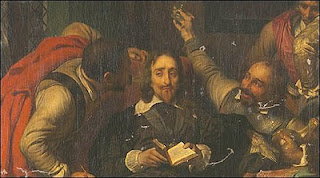
Monday, January 23, 2012
Storytelling and Worship
Today I was working on the bulletins for the Candlemas service for Christ Church on February 2. Candlemas celebrates the Presentation of Christ in the Temple. As I was placing the Gospel reading into the bulletin, something dawned on me. When I was reading the story of the infant Jesus in the arms of the Simeon in the temple, and his proclamation of “Lord, now lettest thou thy servant depart in peace, according to thy word; for mine eyes have seen thy salvation, which thou hast prepared before the face of all people, To be a light to lighten the Gentiles, and to be the glory of thy people Israel,” I pictured in my head an elderly man, holding the infant, and seeing the baby’s story unfold before his eyes, and being at peace with the end of his story. It is all very human, so simple, so mundane, and yet so profound—the Son of God, in the form of a man, being held lovingly like any other child in the world.
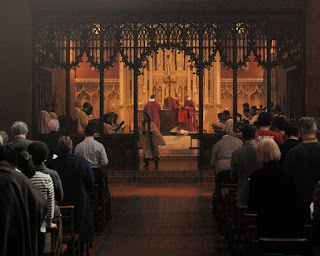
It has been almost a year since I started attending services at Episcopal Churches, and in that time I have started to understand the Liturgy. Within it is something so profound and yet beyond comprehension. And though I had the Liturgy as a part of my life while growing up Roman Catholic, it has only been recently that I seen what it means to “worship the Lord in the beauty of holiness” and how we are called to “offer and present unto thee, O Lord, our selves, our souls and bodies, to be a reasonable, holy, and living sacrifice unto thee.”
I think at the heart of being Catholic is the melding together of our individual story into a collective story. In that call to the altar, we are not only encountering God, we are called to be with one another. All people, and all their stories are welcome to meld and merge and become the great story of God that continues to flow in the world and replenishes, renews, and restores this world.
